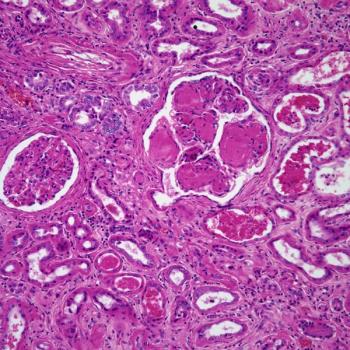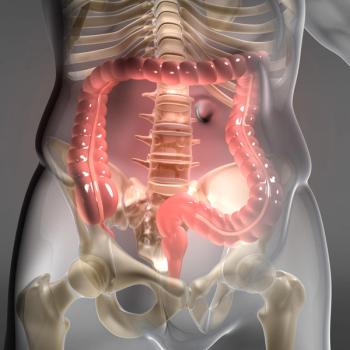
Investigators are currently assessing possible predictors for response to inavolisib as part of the phase 2 CRAFT trial.

Your AI-Trained Oncology Knowledge Connection!


Investigators are currently assessing possible predictors for response to inavolisib as part of the phase 2 CRAFT trial.

Treatment with durcabtagene autoleucel meets the primary end point of a phase 2 study in relapsed/refractory multiple myeloma.

Data from the LUMINOSITY trial support the application for telisotuzumab vedotin in nonsquamous NSCLC harboring c-Met protein overexpression.

Whole or accelerated partial breast ultra-hypofractionated radiation in older patients with early breast cancer may reduce recurrence with low toxicity.

The only way forward in the brain cancer field is to be open to mentoring others, according to Yoshie Umemura, MD.

Ultra-hypofractionated radiation in those 65 years or older with early breast cancer yielded no ipsilateral recurrence after a 10-month follow-up.

Investigators report no grade 4 adverse effects among patients who received elacestrant/abemaciclib in the phase 1b/2 ELECTRA trial.

The unclear role of hypofractionated radiation in older patients with early breast cancer in prior trials incentivized research for this group.

Data from a phase 1b/2 trial show that sonrotoclax/dexamethasone appears to be well tolerated in a heavily pretreated multiple myeloma population.

Thomas G. Martin, MD, discussed the advantages of quadruplet therapy for multiple myeloma in light of an FDA approval for Isa-VRd in this indication.

Phase 2 data support further evaluation of nivolumab plus standard radiotherapy in patients with Gleason grade 5 prostate cancer.

Data from the BLUE-C trial support the approval of the Cologuard Plus test for colorectal cancer screening among at-risk individuals.

Nearly all patients in the per-protocol population of the MIDAS study achieved a very good partial response or better following study treatment.

Phase 3 data support a daratumumab-based quadruplet as a new potential regimen in transplant-ineligible newly diagnosed multiple myeloma.

Results from the INNATE trial showed the use of sotigalimab to be a safe and efficacious regimen for patients with rectal cancer.

Data show that twice-daily radiotherapy may confer improved survival vs once-daily radiation in patients with limited-stage small cell lung cancer.

The FDA has set a Prescription Drug User Fee Act date in the first quarter of 2025 for the potential approval of acalabrutinib in previously untreated MCL.

Findings from the phase 3 CheckMate 77T trial support the approval of nivolumab plus chemotherapy for resectable NSCLC.

Concurrent chemoradiation yielded similar contralateral breast recurrence outcomes vs a sequential approach in early-stage breast cancer.

Adding bortezomib to Isa-Rd triplet therapy enhanced MRD-negative responses in patients with transplant-ineligible multiple myeloma.

Isatuximab plus VRd triplet therapy did not significantly increase toxicity in patients with transplant-ineligible multiple myeloma in the IMROZ trial.

Isatuximab quadruplet therapy for patients with multiple myeloma prolonged progression-free survival when compared with VRd triplet therapy.

Use of DCISionRT may open new options for tailored treatments among patients with HER2-positive ductal carcinoma in situ.

Retrospective study data show that patients with inflammatory bowel disease may not require modification of standard radiotherapy for pelvic malignancies.

Prospective trial data may help guide treatment planning for patients with inflammatory bowel disease planning to undergo radiotherapy.

Investigators anticipate launching the dose-expansion portion of the phase 1 HDP-101-01 trial in 2025.

Efficacy findings were enhanced when 177Lu-Dotatate was used to treat patients with grade II/III recurrent meningioma.

UNITED is the first trial to assess MR-guided weekly adaptive on-line and real-time radiotherapy with clinical target volume margin reductions.

Samantha Shenoy, NP, MSN, suggests that support groups may help comfort patients experiencing adverse effects negatively impacting quality of life.

Data from DESTINY-Breast06 support the priority review designation for T-DXd as a treatment for HER2-low or HER2-ultralow breast cancer.